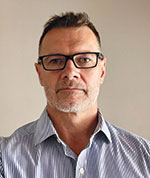
We all need some good news. In a time where the world is facing a myriad of challenges, be it financial, geopolitical or environmental, growth and development certainly equate to good news.
Africa’s data centre market is growing at an unprecedented rate, driven by a soaring demand for digital services, artificial intelligence (AI), crypto currencies and cloud computing. According to recent statistics, the data centre market is projected to reach over $7 billion by 2028, at a compound annual growth rate of 7% .
This is good news indeed, as Africa’s burgeoning digital landscape also presents significant opportunities for investors, technology companies and local businesses. However there’s a caveat, data centre planners must ensure that these facilities are built with the continent’s power provision, local economy and geographical challenges in mind.

Local knowledge is power
Current data centres are positioned in a crowded market where supply often exceeds short-term demand. This means that local suppliers often have to meet the extremely complex requirements of mammoth hyperscalers, which can be prohibitively expensive and in some instances simply inaccessible.
In order for the African data centre market to flourish, local business expertise must be utilised. For one, local providers understand the financial constraints and specific needs of African businesses and can offer tailored solutions at more affordable prices. Similarly, by catering to the budgets and requirements of local enterprises and SMEs, these providers can tap into a much broader customer base and achieve more sustainable growth.
Another important step is considering the physical data centre facility. Existing buildings like older factories or railroad buildings can be repurposed, and intelligent software solutions implemented to optimise resource management and operations while driving down costs.
From an energy management perspective, these buildings can be retrofitted with load balancing features, service optimisation and adaptive power allocation, which can enhance the efficiency of facilities while ensuring optimal performance during peak usage periods.
Prefabricated modular data centres are also a compelling alternative solution to the African data centre market. They offer a dynamic response to the need for rapid deployment, standardisation, and sustainability. As the name suggests, these data centres consist of pre-built modules that house various components critical to data centre functionality. The modules fall into categories such as power, cooling and IT.
A major advantage of prefabricated data centres is the efficiency and predictability they bring to the construction process. Unlike traditional data centres, where one must contend with the variability of handling material and availability, prefabricated data centres can be produced in local, controlled factory environments.
The sustainability balancing act
As mentioned earlier, power provision is a significant stumbling block in the proliferation of data centres in Africa. While not a challenge unique to the continent, data centre providers will have to be prudent when planning facilities and their expected power consumption.
Even if a country’s grid infrastructure can handle new capacity demands, it is facing another challenge: decarbonisation. In the US, for example, new sustainability standards targeted at data centres are currently under consideration or have been enacted.
Also, let us not forget power reliability. The 2022 Uptime Report on IT downtime found that the cost of downtime continues to grow:
• One out of five data centres experienced a serious or severe outage in the last three years, and 80% of all data centres experienced some type of outage.
• 60% of data centre outages cost at least $10 000, while outages costing over $1 million grew from 11 to 15% in just three years.
This scenario is prevalent across the globe, and Africa is not an exception. Fortunately, when building data centres, a distributed energy resources (DER) solution can be built to stabilise supply. These include:
• Renewables such as solar and wind.
• Battery energy storage systems and UPSs.
• Fuel cells, including hydrogen and other nascent or emerging resources.
• Combined cooling, heating and power
• Right-sized natural gas or diesel generators.
By managing the above DERs using technology such as Schneider Electric’s EcoStruxure Microgrid Advisor, your data centre operation will be improved, demand response will be optimised, and the system can be set up to run autonomously (island mode) or as part of the grid.
| Tel: | +27 11 254 6400 |
| Email: | [email protected] |
| www: | www.se.com/za/en/ |
| Articles: | More information and articles about Schneider Electric South Africa |

© Technews Publishing (Pty) Ltd | All Rights Reserved